Jeremy Podeswa’s archive will help students learn how TV is made from script to screen
Story by: Michelle LePage
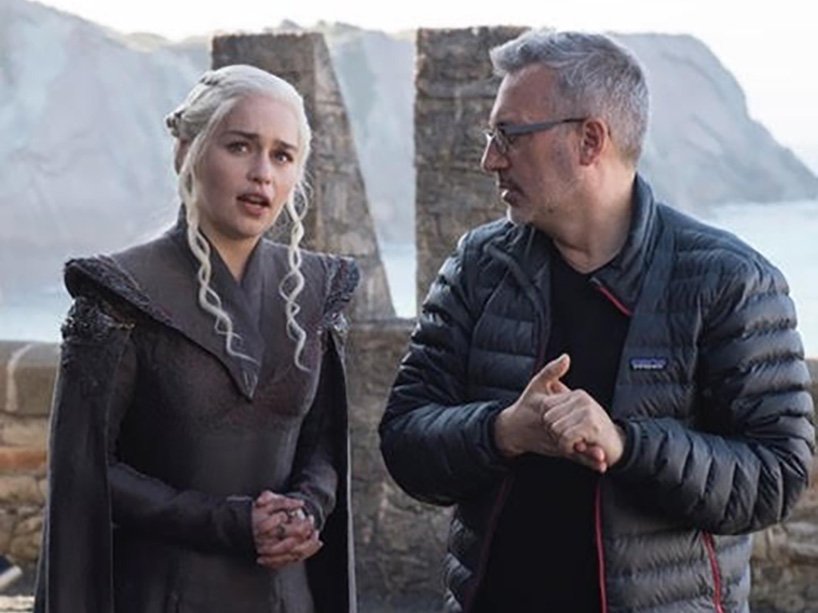
Throughout his decades-long career as a film and television director, Toronto Metropolitan University alumnus Jeremy Podeswa has kept an extensive collection of material related to his work.
From initial scripts and their subsequent revisions, to casting notes and concept art, the documents reveal Podeswa’s creative process as the director of feature films and prestige television shows including Six Feet Under, True Blood, Queer as Folk, Carnivale, Boardwalk Empire and Game of Thrones.
The TMU alumnus (Image Arts ’84) recently gifted an archive of materials from his career to the university. After the archive is cataloged it will be made available to students, researchers and the public by appointment at TMU’s Archives and Special Collections.
Podeswa said the archive is “an interesting trove of material that, viewed in totality, really shows how TV is made. It demonstrates the steps to breaking a script down and pulling together all the elements that comprise a full production.”
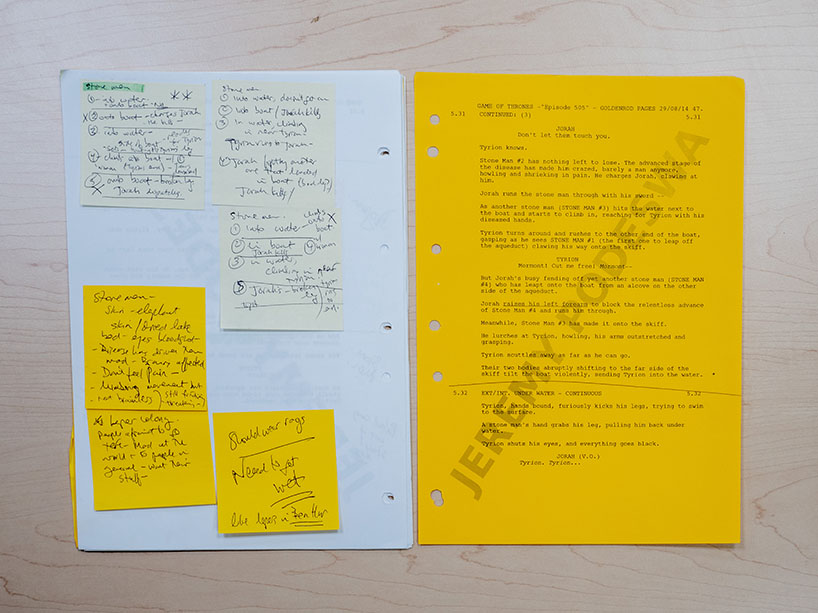
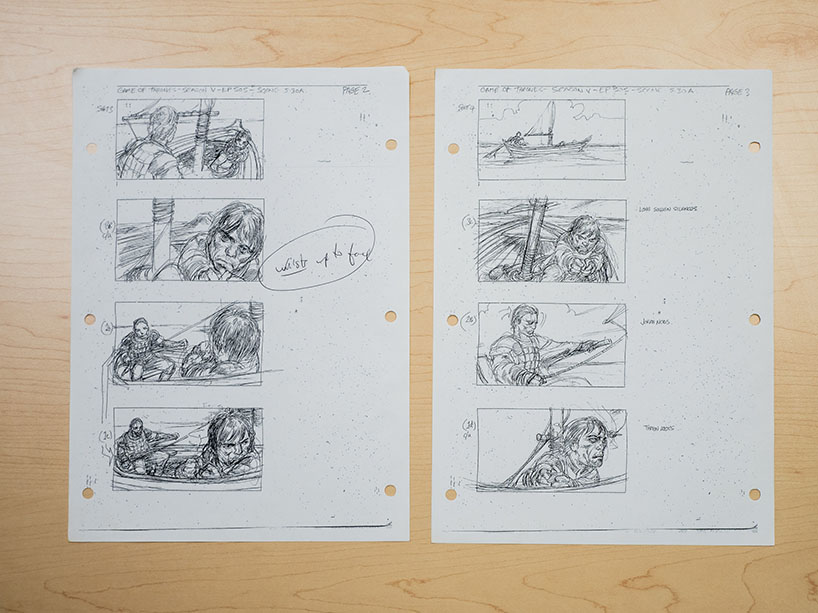
Included in the archive are scripts featuring Podeswa’s handwritten notes and revisions, hand-drawn storyboards, photos of filming locations, architectural drawings and site plans. Other gems include notes and reminders written on scrap pieces of paper, production schedules and call sheets.
The wealth of materials filled 36 boxes before it was processed by TMU’s Archives and Special Collections, and captures Podeswa’s growth as a director.
“Evident here is my progression from my first and second films to Queer as Folk to Six Feet Under and onward,” said Podeswa. “You can see the trajectory in the materials, and I hope that can be inspiring and instructive to someone who wants to carve a similar path.”
The Golden Age of Television
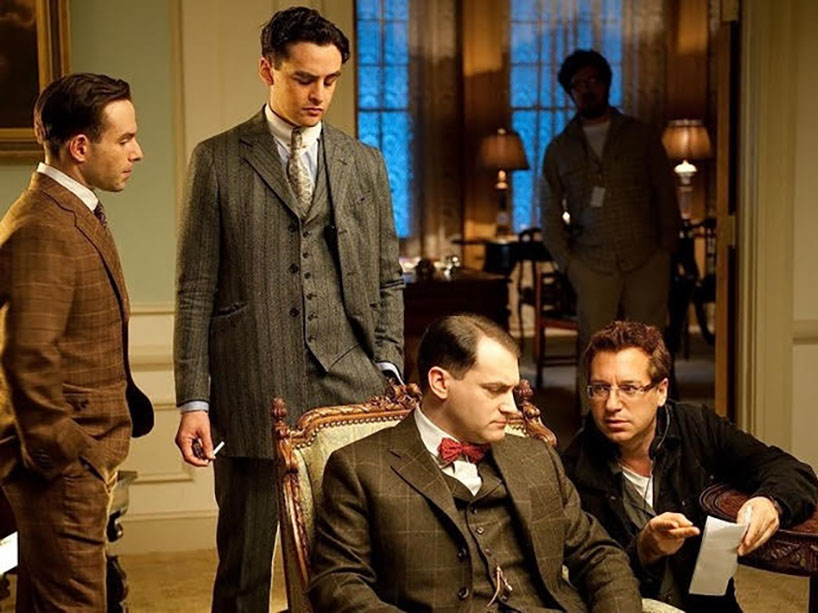
Many of the series that Podeswa worked on fall into a category of television known as Prestige TV or the Third Golden Age of Television. It’s a period defined by groundbreaking HBO shows like The Sopranos, Six Feet Under and Game of Thrones.
“I was involved in those first five or six years when things were really changing quickly. It was very exciting,” said Podeswa. “The content and tone was entirely new, and I was fortunate to be one of the first independent filmmakers to move into that world. It gave me the opportunity to stretch—to work on a huge canvas with major writers and increasingly complex and diverse material.”
Prestige TV shows tell long-form stories over the course of an entire season, creating vast, complex and more cinematic worlds. As a result, Podeswa’s archive is filled to the brim with creative material.
“We are deeply grateful for Jeremy Podeswa’s donation of archival materials. It is so meaningful to have original work of such an illustrious alumnus represented in our Archives and Special Collections,” said Mark Robertson, Dean of Libraries at TMU. “This collection will be invaluable to students and researchers who want to explore and learn from Podeswa’s creative processes.”
Finding community at TMU
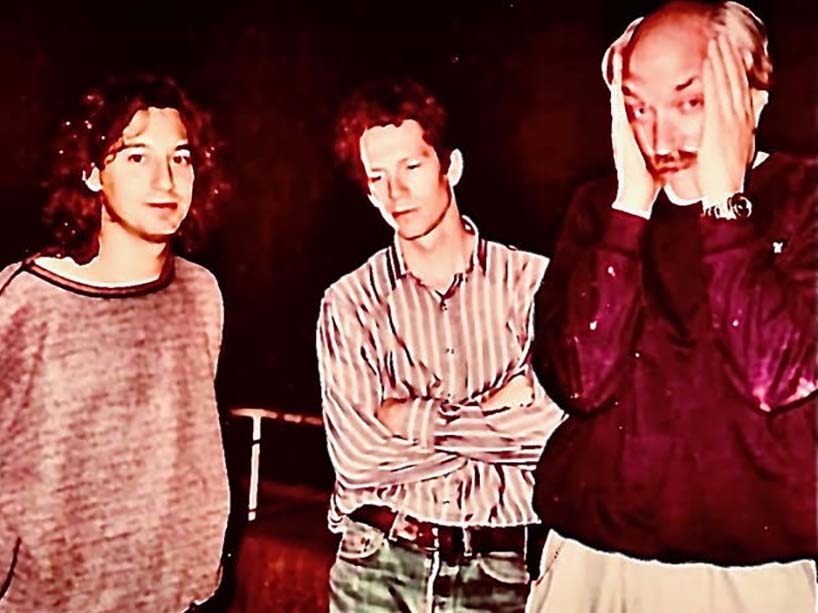
Even as a student, Podeswa experienced success. His third-year thesis film, David Roche Talks to You About Love, premiered at the 1983 Festival of Festivals, the predecessor to the Toronto International Film Festival. He won the Norman Jewison Award that year for the best student film in the country.
“My success started with the two short films I made at Ryerson,” said Podeswa. “The faculty and program really helped with every aspect of filmmaking, but I think the biggest thing I learned was an appreciation for film as an art form. It wasn’t an industry approach; it was about finding your voice as a filmmaker and that was really important for me. That’s something that has really stuck with me from the very beginning: to not be a generic filmmaker but to be a really specific filmmaker, and to do things in your own unique way.”
While finding his voice, Podeswa also found a community of supportive young filmmakers at TMU. Podeswa and his TMU classmates Bruce MacDonald, Adrienne Mitchell and Peter Mettler were part of a community of emerging filmmakers known as the Toronto New Wave, which also included Canadian filmmakers Atom Egoyan and Patricia Rozema.
“It was an incredibly supportive and encouraging environment,” said Podeswa. “All of us were friends and colleagues and we looked at each other’s scripts and rough cuts. We shared everything—crew, resources, opinions. There was a sense that something was happening in film in Toronto at that time, and it felt like that was largely coming out of Ryerson and expanding into the world.”
In the years since, Podeswa says he’s been asked for advice from recent graduates both from TMU and elsewhere, wanting to know how to get from “here to there.” Podeswa hopes his archive can act as a kind of roadmap for young filmmakers looking to walk a similar path.